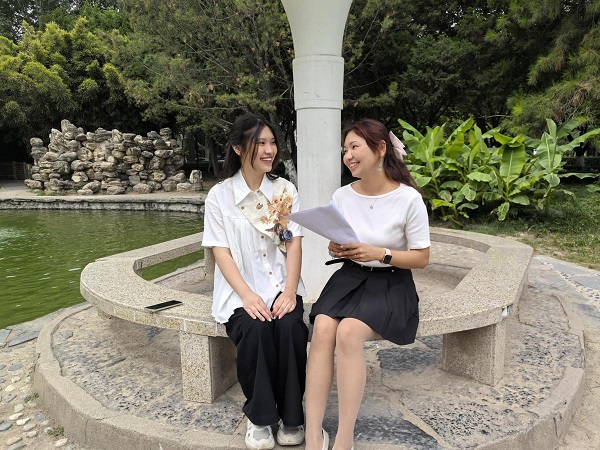Cheng Hai elected corresponding member of OeAW

Cheng Hai, professor at the School of Human Settlements and Civil Engineering, Xi'an Jiaotong University
Cheng Hai, a professor at the School of Human Settlements and Civil Engineering, Xi'an Jiaotong University, was elected corresponding member of the Division of Mathematics and the Natural Sciences of the Austrian Academy of Sciences (OeAW) on May 13.
Cheng has been at the forefront of the development of uranium series technology for the past three decades.
His most well-known technical achievement is the improvement of uranium series dating techniques in 231Pa and 230Th dating systematics, including the re-determination of 230Th and 234U half-lives, which have been widely accepted and used in the uranium-series dating field.
He has developed internationally-leading uranium series mass spectrometry measurement technology, provided many important and accurate absolute time scales of late Quaternary climate change, and accurately measured trace elements and their isotopes in geological samples such as seawater. These techniques are widely used in the study of many fundamental areas in paleoclimatology, paleooceanography, and global climate change research.
Cheng is also an internationally renowned expert in stalagmite paleoclimate research thanks to many breakthrough discoveries.
Based on state-of-the-art uranium-series dating techniques, Cheng has played an important role in reconstructing climate history at different time scales in different regions using stalagmite records, including the longest East Asian (640ka) and Indian (280ka) monsoon stalagmite records, the longest westerly climate records including stalagmite records from western China (500ka), Central Asia (350ka) and North America (335ka), and the longest Amazon basin stalagmite record (250ka).
These records are milestones in reconstructing paleoclimate variability across different climate systems and play an important role in understanding, correlating and calibrating global climate change.
He also played a leading role in 14C calibration using stalagmites, providing a key 14C dataset for atmospheric 14C reconstruction and extending the correction limit to the 14C dating limit (about 54,000 years).
Recently, the Xi'an Jiaotong University Isotope Laboratory led by Cheng established a high-precision stalagmite tri-oxygen isotope (16O-17O-18O) analysis technology, and obtained a set of stalagmite 17Oexcess data for the first time, combining the new 17Oexcess index with the δ18O index, to study cave stalagmite paleoclimate change, providing new insights into hydroclimate change and underlying dynamics.
Cheng has provided a large amount of 230Th dating data for many cooperative units, and these precise age data have been applied to the paleoclimates of different time scales in Asia, South America, Arabia, Africa, North America, Central America, Europe, tropical Pacific and other regions. The breakthrough research on climate change also created a "golden nail" age for archaeological research, such as ancient human evolution in China, India and other regions.
The Austrian Academy of Sciences (OeAW) is Austria’s largest non-university research and science institution. Its statutory mission is to “promote science in every way”.
Founded in 1847 as a learned society, today the OeAW has over 760 members and 1,800 employees dedicated to innovative basic research, interdisciplinary exchange of knowledge and the dissemination of new insights with the aim of contributing to progress in science and society as a whole.
The members of the Academy engage in interdisciplinary exchange to consider important questions concerning the future, advise on policy and society and inform the general public of important scientific insights. They also form commissions in which they examine questions of great relevance to science and society.

